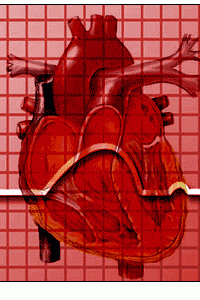Binge eating is more than just overindulgence; it is a serious and complex condition that can have long-lasting effects on physical and emotional well-being. Characterized by consuming unusually large amounts of food in a short period, often accompanied by feelings of shame and lack of control, binge eating is a behavior that can significantly impact one's health. While occasional overeating is common, binge eating disorder (BED) represents a pattern that goes far beyond this, requiring attention and intervention.
What Is Binge Eating Disorder?
Binge eating disorder involves episodes of consuming excessive quantities of food, often rapidly and without the ability to stop, even when not physically hungry. A typical daily calorie intake ranges between 1,500 and 3,000 calories. However, during a binge, individuals may consume as many as 10,000 to 20,000 calories in one sitting. This overwhelming intake is often followed by intense feelings of guilt, distress, or disgust. BED has only recently gained recognition as a legitimate medical condition, and it is estimated that approximately 4% of the U.S. population struggles with this disorder.
While BED can affect anyone, it is slightly more prevalent among women than men and often manifests in individuals in their 40s and 50s. Both genetic and environmental factors contribute to its development, with emotional triggers playing a significant role in many cases.
What Causes Binge Eating Disorder?
The exact causes of binge eating disorder remain unclear, though several contributing factors have been identified. Research indicates that up to half of those with BED have a history of depression. However, it is not always evident whether depression leads to binge eating or vice versa. Additionally, negative emotions such as anger, sadness, boredom, or anxiety often trigger binge episodes, acting as a temporary escape from psychological distress.
Other psychological traits, such as impulsivity and difficulty managing emotions, are common among those with BED. Environmental influences, such as societal pressure to achieve an ideal body image or exposure to dieting culture, can also exacerbate the condition. Finally, genetic predispositions may increase vulnerability to developing the disorder.
Complications of Binge Eating Disorder
BED can lead to numerous physical and psychological complications. Individuals with this disorder are at an increased risk of developing:
- Type 2 diabetes
- High blood pressure
- High cholesterol
- Gallbladder disease
- Heart disease
- Certain types of cancer
In addition to overall health risks, BED often causes severe emotional distress, including low self-esteem, social withdrawal, and heightened feelings of shame and embarrassment. These complications can create a vicious cycle, where the negative emotions resulting from binge eating drive further episodes.
Recognizing the Signs of Binge Eating Disorder
Identifying BED requires distinguishing between occasional overeating and a persistent pattern of disordered behavior. Key indicators of BED include:
- Eating unusually large quantities of food within a specific time frame.
- Feeling out of control during eating episodes.
- Consuming food rapidly or in secret due to embarrassment.
- Eating until uncomfortably full or when not hungry.
- Experiencing feelings of disgust, guilt, or depression after binging.
Unlike bulimia nervosa, BED does not typically involve compensatory behaviors such as purging, fasting, or excessive exercise. However, both disorders share a focus on distress around food and eating habits.
How to Manage and Treat Binge Eating Disorder
Overcoming BED often requires professional help, as many individuals struggle to manage the disorder on their own. Treatment typically involves a combination of therapy, medical support, and lifestyle changes.
Therapeutic Approaches
Cognitive-behavioral therapy (CBT) is one of the most effective treatments for BED, helping individuals identify and challenge negative thought patterns that contribute to disordered eating. Dialectical behavior therapy (DBT) and interpersonal therapy (IPT) can also address underlying emotional triggers and improve coping mechanisms.
Medical Intervention
In some cases, medication may be prescribed to manage symptoms of BED or co-occurring conditions such as depression or anxiety. Options include antidepressants, antiepileptic drugs, or medications specifically approved for BED.
Lifestyle Modifications
Making gradual, sustainable changes to daily habits can support recovery:
- **Follow a structured meal plan:** Eating regular, balanced meals helps stabilize blood sugar levels and reduce the urge to binge.
- **Avoid restrictive diets:** Strict dieting can trigger binge episodes, creating a cycle of deprivation and overindulgence.
- **Practice mindfulness:** Mindful eating techniques encourage awareness of hunger and fullness cues, promoting healthier relationships with food.
- **Seek social support:** Engaging with friends, family, or support groups can provide encouragement and accountability.
Tips for Managing Binge Eating at Home
While professional treatment is essential, there are steps you can take at home to support your recovery:
- Stick to your treatment plan, attending therapy sessions and following prescribed meal plans.
- Avoid stocking trigger foods in your home to reduce temptation.
- Start your day with a nutritious breakfast to prevent overeating later.
- Focus on nutrient-dense foods to ensure you’re meeting your body’s needs.
- Stay active with appropriate physical activities recommended by your healthcare provider.
When to Seek Help
If you suspect you may have BED, it’s important to recognize that you are not alone. Many individuals with BED struggle to control their eating habits without assistance. Seeking professional help from a doctor, therapist, or dietitian can provide the tools needed to break free from the cycle of binge eating and achieve lasting recovery.
With the right support, most people with BED can learn to manage their condition and lead healthier, more fulfilling lives. Taking the first step may feel daunting, but it’s an essential move toward healing and regaining control over your health and well-being.
This article is editorial in nature and does not constitute medical advice. Always consult a physician for any health-related concerns, whether psychological or physical.












